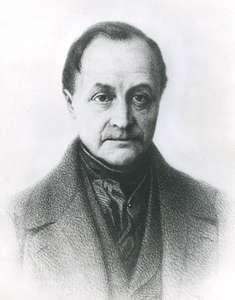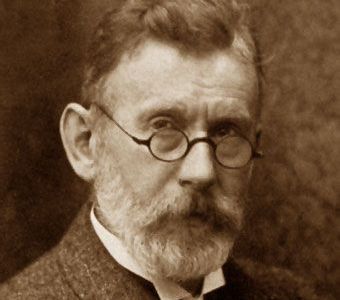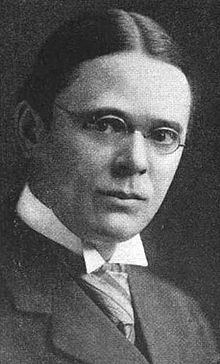Sociological School of Jurisprudence – An Overview
“The glory of justice and the majesty of law are created not just by the Constitution -nor by the courts – nor by the officers of the law – nor by the lawyers – but by the men and women who constitute our society – who are the protectors of the law as they are themselves protected by the law.” – Robert Kennedy
Introduction
In early age, rules and laws are originated from the only custom to govern the society which had only a social sanction. Later, the supremacy of King and priest came. When, after the revolution and changes, the balance between the individual interest and welfare of society was realized.
The central subject matter of sociology is Society. Sociology is the examination of society, human behavior, and social changes. And jurisprudence is the knowledge of the law and legal aspect of things. The Sociological school of Jurisprudence advocates that the Law and society are linked to each other. This school argues that the law is a social aspect because it has a major impact on society.
August Comte (1798-1857) was a French Philosopher. The term “Sociology” was revealing used by the Comte and he described Sociology as a positive science of social facts. He said that Society is like an organism and it could improve when it is guided by Scientific Principles. Therefore, he makes great efforts to use the law as a tool by which human society maintains itself and progresses.

After Comte, many Writers and Jurist sought to combine the society and law together, and tried to find a link between law and sociology.
The Sociological school of Jurisprudence
The idea of Sociological School is to prove a relation between the Law and society. This school laid more stress on the legal perspective of every problem and every variety that take place in society. Law is a social phenomenon and law has some primary or indirect relation to society. Sociological School of Jurisprudence concentrates on balancing the benefit of state and individual was realized.
In the words of Ehrlich, “At the present as well as at any there time, the center of gravity of legal development lies not in legislation, nor in the juristic decision, but in society itself. ”
Sociological School of Jurisprudence scrutinizes the relationship between the law and sociology. Every query or concept has two different aspects. One is a sociological way and other is a legal perspective. For instance Sati.
Legal and Sociological aspect of Sati
Sati was the ancient Indian system of burning the widow on her husband’s funeral pyre.
The legal aspect:
Sati Pratha was first removed in Calcutta in 1798. A territory that fell under the British jurisdiction. A ban on Sati was imposed in 1829 in the British colonies in India. In today’s time, the practice of Sati is forbidden under the Prevention Of Sati Act (1987) which makes it illegal to force or support anyone to commit Sati.
The sociological aspect
In today’s era of increasing feminism and focus on equality and human rights, it is hard and amiss to digest the ruthless Hindu practice of Sati. Hence, the practice is outlawed and illegal in today’s India.
The emergence of Sociological School of Jurisprudence
What is Laissez-Faire?
According to the Britannia dictionary, “ Laissez-faire is the policy of minimum governmental interference in the economic affairs of individuals and society.”
Laissez-Faire is the unlimited freedom given to people by the government. It is a political policy in which the government and law will not interfere in the economic matter of people. In the Laissez-Faire market, the only role of government and law is to stop any conflict and coercion against individuals like theft, fraud etc
The sociological method to jurisprudence which resulted out of the change in the political shift from the doctrine of the laissez-faire, the industrial and technological revolution and finally the historical school bringing into center the relationship between the law and social welfare State of the modern century, has attempted to study law as seeking social origin of law and legal institutions, examining law as a given social phenomenon and lastly judging law by its social utility.
Due to Laissez-Faire, all people are assigning more importance to the individual interest and ignored the general interest or state benefit and welfare of the state. The Sociological school came out as a reaction opposite the laissez-faire because sociological school advocates the balance between the welfare of the state and individual interest.
Jurist of the Sociological School of Jurisprudence
Montesquieu (1689-1755)
Montesquieu was the French philosopher and he covered the way of the sociological school of jurisprudence. He was of the view that the judicial process is somehow affected by the social condition of society. He also acknowledged the importance of history as a means for understanding the structure of society. And taught the importance of studying the history of society before formulating the law for that society.

In his book ‘The Spirit of Laws’, he wrote “law should be determined by the characteristics of a nation so that they should be in relation to the climate of each country, to the quality of each soul, to its situation and extent, to the principal occupations of the natives, whether husbandmen, huntsmen or shepherd, they should have relation to the degree of liberty which the constitution will bear, to the religion of the inhabitants, to their inclinations, riches, numbers, commerce, manners, and customs.”
Eugen Ehrlich (1862-1922)
Eugen Ehrlich was held as the founder of Sociology of law. Sociology of law is the study of law from the sociological view. Ehrlich considered society as a principal source of the law. And by society, he means “association of men”.

Ehrlich had written that “Centre of gravity of all legal developments is not in legislation or judicial decisions but in society itself.”
He explained that society is the main source of law and better source of law than legislation or judicial decision.
Theory of Social Engineering
Roscoe Pound gives the theory of Social Engineering in which he connected lawyers with the Engineers. Engineers are expected to use their engineering skill to manufacture new products. Likewise, social engineers are required to build that type of structure in the society which provides maximum happiness and smallest friction.
According to Pound, “Law is social engineering which means a balance between the competing interests in society,” in which applied science is used for resolving individual and social problems.

Social Engineering is the balancing the different interest of Individual and the state with the help of law. Law is a body of awareness with the help of law the large part of Social engineering is carried on. Law is applied to solve the conflicting interest and problems in society.
He mentioned that everybody has its own special interest and considered it supreme over all other interest. The purpose of the law is to create parity between the interests of the people. For instance, Article 19 of the Indian Constitution provides ‘Rights to speech and expression’ but on the other side, State put some limitation on this right. And when the conflict occurs between Individual right and State’s restriction, then the law comes to play its part. And solve the dispute between the interests.
Interest Theory
Roscoe Pound in his interest theory suggested the three kinds of interest. To avoid the overlapping of the interests, he put limits and divide the kinds of interests.
-
Individual Interest
These are requests or demands involved from the standpoint of the individual life which consists of interest of personality, interest in domestic relations and interest of substance
-
Public Interest
These are the claims or wishes asserted by the individual from the standpoint of political life which means every individual in a society has a responsibility towards each other and to make the use of things which are subject to public use. Interest in the security of the state.
-
Social Interest
These are the claims or demands in phases of social life which means to fulfill all the needs of society as a whole for the proper functioning and support of it. Interest in the preservation of general peace, health, security of transaction’s, preserving social institutions like religion, politics, economic.
Jural Postulates by Roscoe Pound
Roscoe Pound mentioned the five Jural Postulate and stated that the interest mentioned in these jural postulates should be protected and supported.
-
Criminal
An interest of protection from any intentional aggression. For instance, Assault, Wrongful restraint, Battery, etc.
-
Law of Patent
An interest of securing his own designed property by his own labour and hard work. Example- agricultural land, any music or artistic things.
-
Contract
The interest in performing the contract and getting of reasonable remedy or compensation when his right violates.
-
Torts
Protection against Defamation and unreasonable injury caused by the careless act of another person.
Leon Duguit (1859-1928)
Leon Duguit was a French Jurist and leading scholar of Droit Public (Public Law). He was greatly inspired by the Auguste Comte and Durkheim. He gave the theory of Social Solidarity which describe the social cooperation between individuals for their need and survival.

Social Solidarity
Social Solidarity is the spirit of oneness. The term ‘Social Solidarity represents the strength, cohesiveness, mutual consciousness and viability of the society.’ Leon Duguit’s Social Solidarity explain the interdependence of men on his other fellow men. No one can remain without the depending on other men. Therefore the social interdependence and cooperation are very important for human existence.
The purpose of the law is to promote Social solidarity between individuals. And Leon Duguit deemed that law as bad law which does not promote social solidarity.
Moreover, he also said that every man had the right and duty to promote social solidarity.
For instance, in India, the codified laws are followed by everyone. Hence, it promotes Social Solidarity.
Sociology of law
Sociology of law scrutinizes sociology from the legal point of view. In India, Sociology of law is a recent field of inquiry. Indian advocates of Sociological jurisprudence are P.B Gajendragakhar, and Upendra Baxi observes society from the legal point of view.
The Sociology of law is the interdisciplinary access or sub-discipline of sociology. It views the society from the legal side. And demonstrates the interdependence of Society and law. Sociology law explains the interdependence of the law and society. Podgorecki has listed the following functions of the sociology of law:
- The sociology of law aims at grasping law in its working;
- It is to provide expert advice for social engineering;
- The sociology of law makes an attempt to shape its studies so as to make them useful for practical applications; and
- The sociology of law struggles with reality.
Therefore, the sociology of law aims at the understanding of legal and social phenomena, whereas the central concern of the traditional approach to jurisprudence is to try analytical-linguistic studies.
